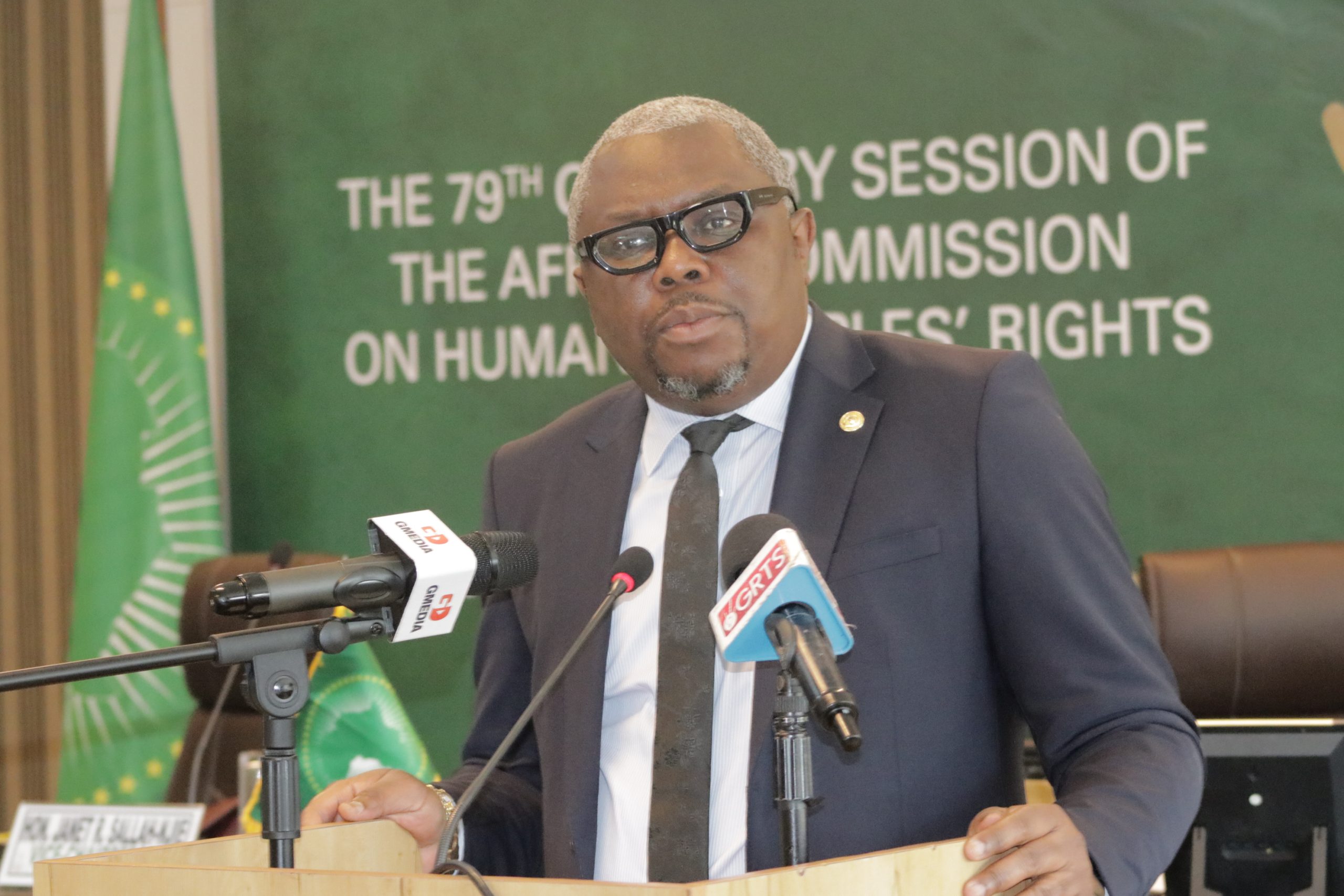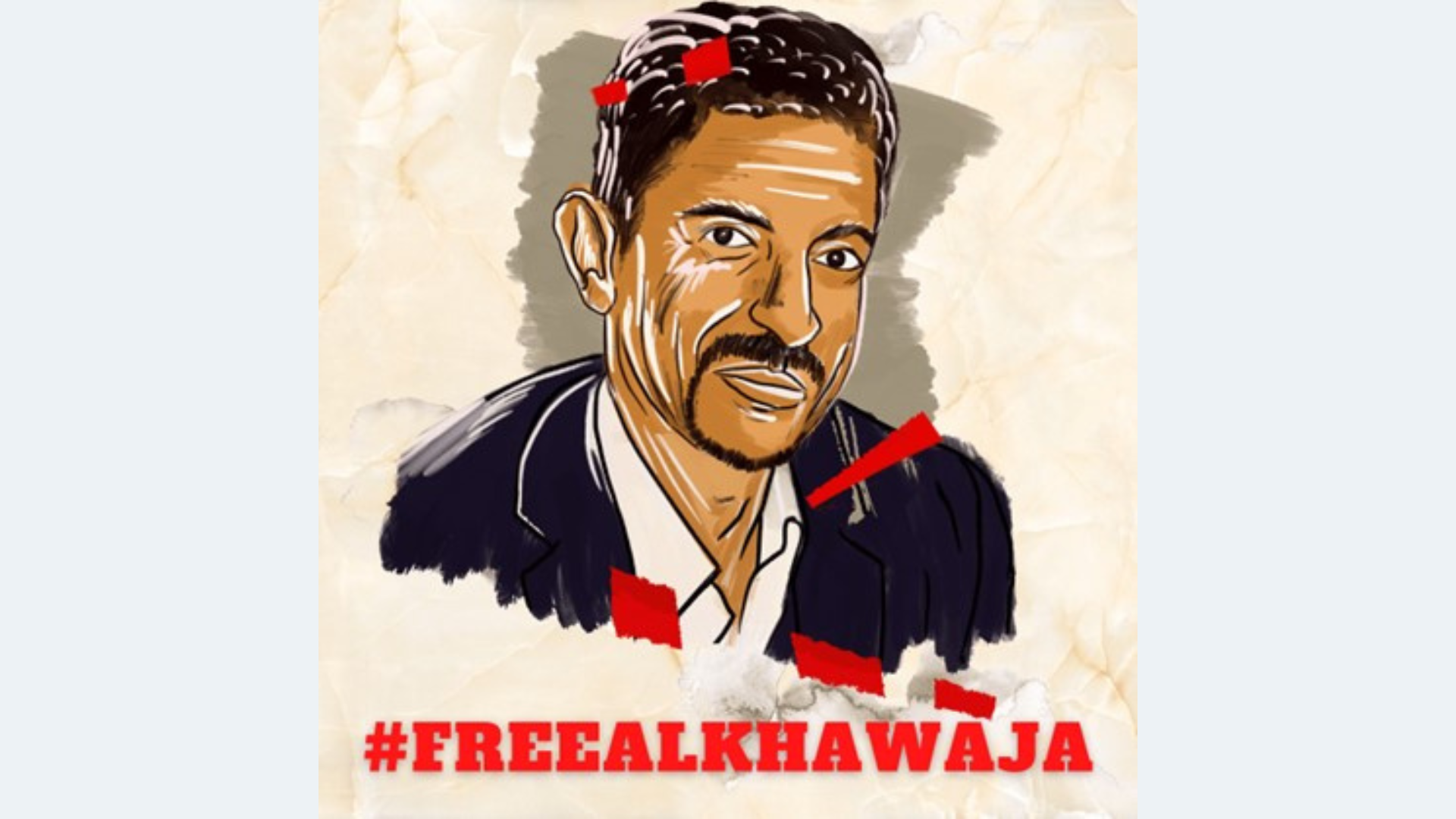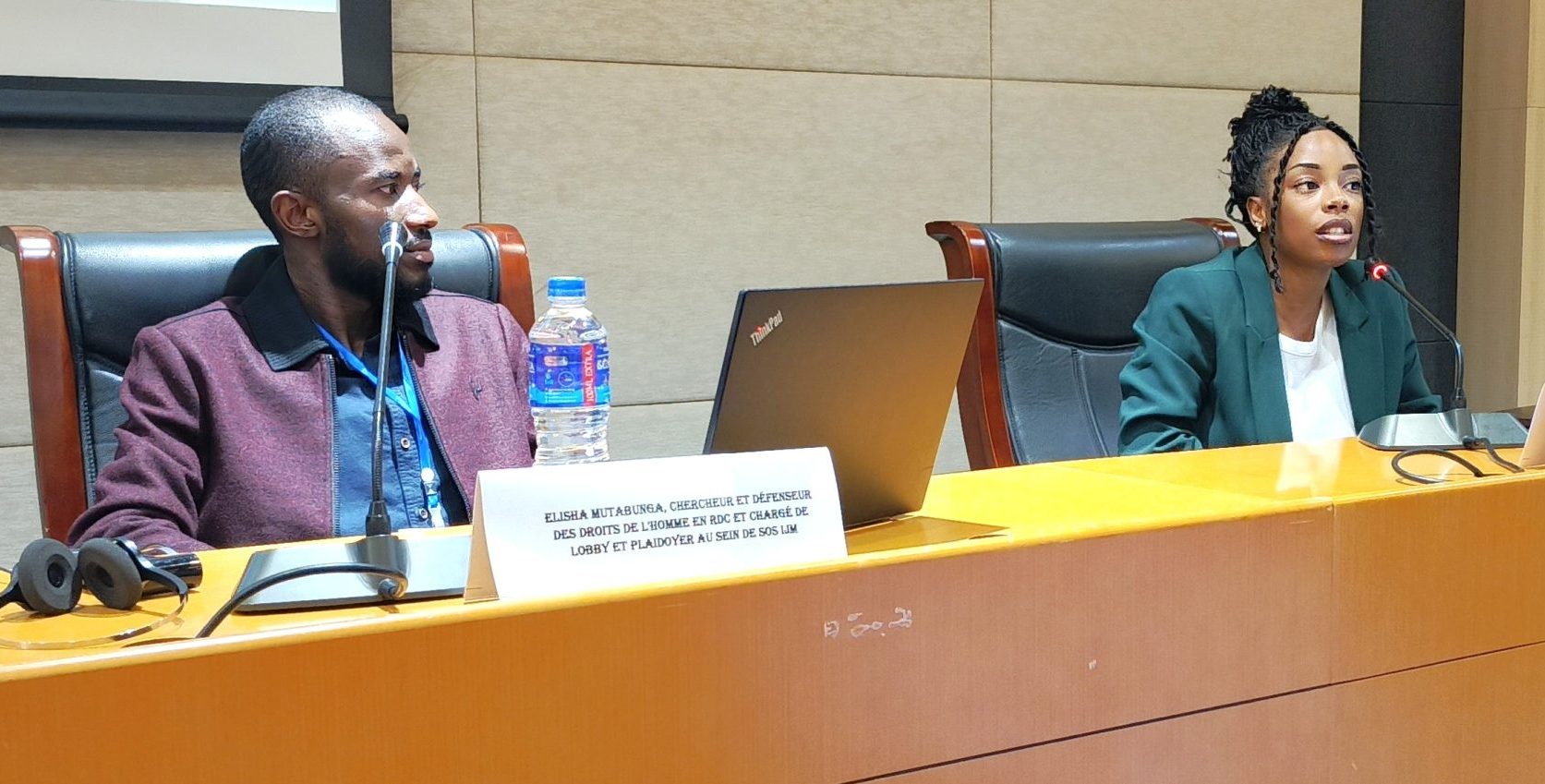On 23 May 2024, the African Commission’s Special Rapporteur on Human Rights Defenders and Focal Points on Reprisals in Africa, Professor Rémy Lumbu Ngoy, presented his activity report at the 79th Ordinary Session of the African Commission held in hybrid format (14 May – 3 June).
In his report, Commissioner Lumbu indicated he conducted, in November 2023, with the support of ISHR, an advocacy visit for the adoption of a human rights defenders’ law in Senegal and recommended that similar efforts be made in other countries deprived of HRD laws. He also reported an academic visit to the Republic of Cameroon in 2024, as well as his participation in the consultation to launch a discussion to set up a network of women human rights defenders in Central Africa, and in the consultation on civic space and capacity building for advocacy initiatives with the African Commission and UN Special Mechanisms.
The Special Rapporteur sent 10 urgent appeals to States after receiving allegations of violations of the rights of defenders in cases of murder, judicial harassment, arbitrary arrest and detention, reprisals and intimidation of human rights defenders. However, States’ responses have been scant.
He concluded by calling on States to investigate threats and acts of intimidation against human rights defenders and ensure alleged perpetrators are brought to book to facilitate the right to justice and reparation for victims and survivors.
Report on Reprisals
In response to the Special Rapporteur’s Report, ISHR made a statement highlighting the need for the Focal Point to publish his long overdue report and to tackle restrictive civic space laws across the continent.
ISHR noted the progress the African Commission made in 2014 by extending the mandate of the Special Rapporteur to cover reprisals in Africa, as cases were increasing and no adequate mechanisms were in place to document and address mounting challenges brought forth by reprisals.
Encouragingly, the Special Rapporteur issued an informative policy brief in 2019 on how to engage with him, and called on various stakeholders to submit their inputs to the first annual report on reprisals.
In 2020, Following this brief, ISHR submitted a report outlining a disturbing pattern of intimidation and reprisals in several African countries against civil society working with African human rights mechanisms.
ISHR’s statement also called on the Special Rapporteur to take proactive measures to counter the growing trend towards the adoption of restrictive laws against human rights defenders across Africa. This follows the adoption in Angola of a bill approving the status of a non-governmental organisation, which considerably limits the enjoyment of fundamental freedoms and restricts civic and democratic space.
‘The promulgation of the law by the executive is currently suspended, but we call on the Special Rapporteur to redouble his efforts to encourage the Angolan authorities to adopt a text that complies with international and regional standards and to do so in consultation with civil society to ensure that they can continue to carry out their activities freely’, Trésor Makunya added.
Inputs needed
While acknowledging ISHR efforts for the publication of the first reprisals report, the Special Rapporteur stated that he needs additional information on reprisals in Africa so that the first report covers the situation of reprisals in all the African Union member states. He lamented the reluctance of several CSOs to provide reprisals information perhaps as they fear reprisals.




